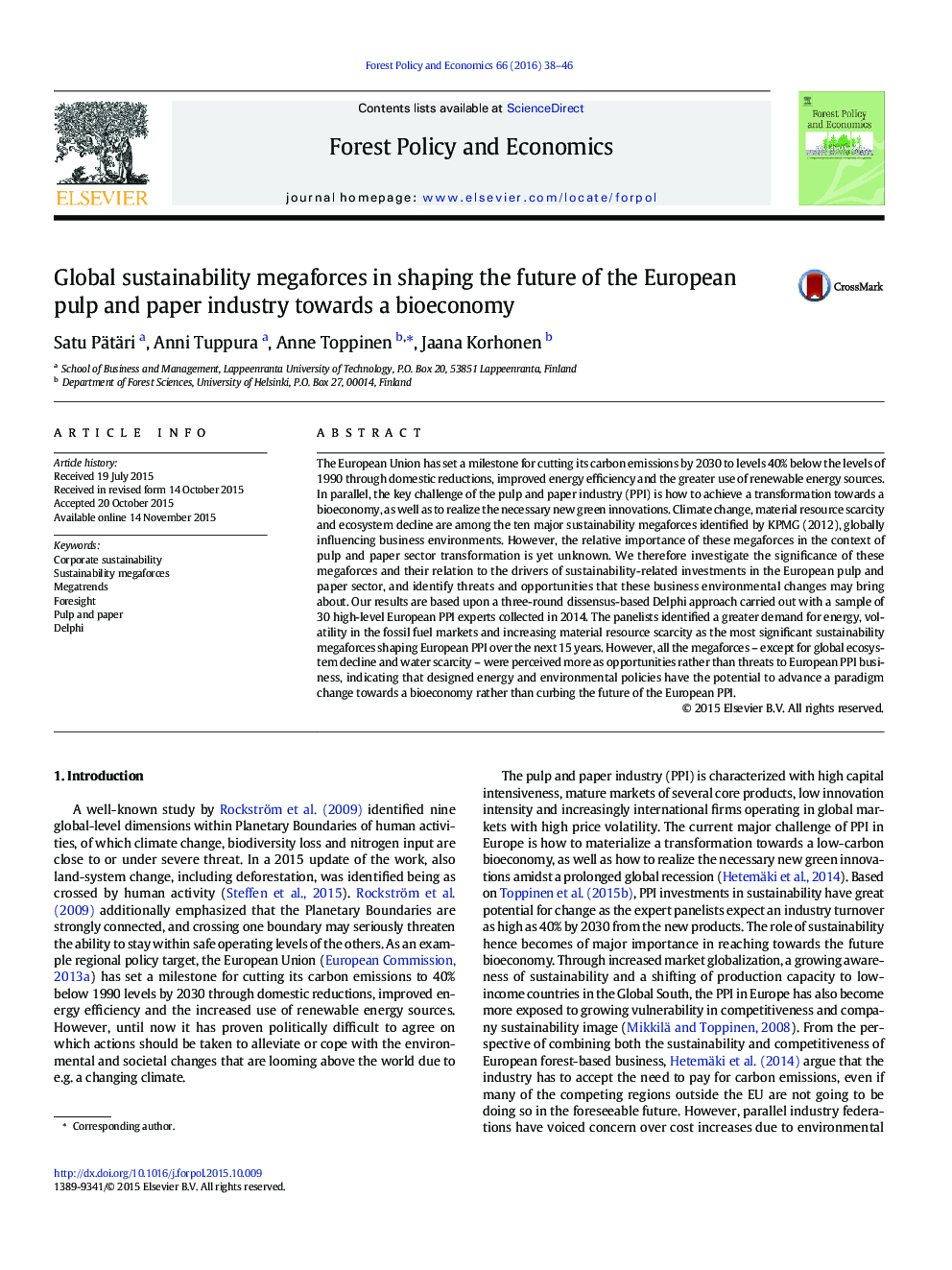| Article ID | Journal | Published Year | Pages | File Type |
|---|---|---|---|---|
| 91637 | Forest Policy and Economics | 2016 | 9 Pages |
•Global sustainability megaforces are among Delphi panelists perceived more as opportunities than as threats•Greatest threat was identified by the panelists to be adaptation to climate change•Designed EU energy and environmental policies have the potential to advance a paradigm change towards a forest bioeconomy•New product development should be based collaboration between suppliers and customers and reaching over sectorial boundaries
The European Union has set a milestone for cutting its carbon emissions by 2030 to levels 40% below the levels of 1990 through domestic reductions, improved energy efficiency and the greater use of renewable energy sources. In parallel, the key challenge of the pulp and paper industry (PPI) is how to achieve a transformation towards a bioeconomy, as well as to realize the necessary new green innovations. Climate change, material resource scarcity and ecosystem decline are among the ten major sustainability megaforces identified by KPMG (2012), globally influencing business environments. However, the relative importance of these megaforces in the context of pulp and paper sector transformation is yet unknown. We therefore investigate the significance of these megaforces and their relation to the drivers of sustainability-related investments in the European pulp and paper sector, and identify threats and opportunities that these business environmental changes may bring about. Our results are based upon a three-round dissensus-based Delphi approach carried out with a sample of 30 high-level European PPI experts collected in 2014. The panelists identified a greater demand for energy, volatility in the fossil fuel markets and increasing material resource scarcity as the most significant sustainability megaforces shaping European PPI over the next 15 years. However, all the megaforces – except for global ecosystem decline and water scarcity – were perceived more as opportunities rather than threats to European PPI business, indicating that designed energy and environmental policies have the potential to advance a paradigm change towards a bioeconomy rather than curbing the future of the European PPI.
